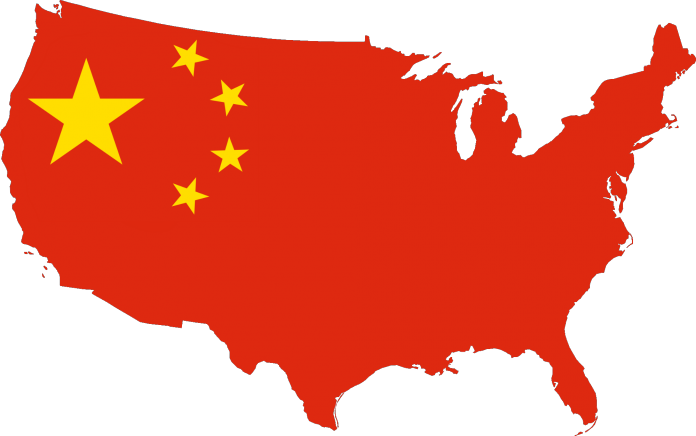This article is written by Ojasvi Gupta, a student of Faculty of Law, Banaras Hindu University, Varanasi. This article brings to light the aim of the Anti-monopoly laws of China, their subject matter, and the effect of the recently updated rules on the platform economy.
Table of Contents
Introduction
Anti-monopoly laws, also known as anti-trust laws or competition laws in other parts of the world are concerned with anti-competitive agreements, their general prohibitions, dominance abuse, and anti-competitive mergers. Drafted in 2007 while being implemented on August 1, 2008, China’s monopoly law doesn’t only include AML but all the legal as well as administrative documents which existed before AML along with administrative or regulatory enforcement. After a decade, a Draft Amendment was notified on January 2, 2020, which revised provisions on various issues that are emerging in antitrust practice. The key changes suggested are:
- Significant increase in fines, especially for failures to notify mergers, acquisitions and joint ventures, gun-jumping, and breach of merger conditions.
- Introduce a stop-the-clock mechanism by adding Article 30, allowing SAMR (State Administration for Market Regulation) more timing flexibility in its review process.
- Broaden the concept of ‘control’ in mergers, acquisitions and joint ventures.
The amendments have been identified as one of China’s key legislative tasks for 2021. Accompanying the upcoming amendment are Guidelines notified by SAMR which provide the much-anticipated combination of litigation and enforcement in the antitrust space.
Purpose of the anti-monopoly law
The basic rationale behind enacting anti-monopoly law is to prevent and restrain monopolistic conduct to a major extent, protect fair competition in the market and enhance the overall economic efficiency of the market.
A monopolized market structure usually characterize:
- An economic organization or institution in a dominant position.
- Material norms and technologies serving for the reproduction and maintenance of the dominant position.
- Formalized structures serving for the justification and legitimacy of the dominant position.
Aggressive competition on the part of businessmen possesses the momentum to disrupt the very foundation of a vibrant economy, i.e., free and open market, making it necessary to provide an equal playing field for smaller businesses that operate in a specific industry while preventing them from gaining too much power over their competition.
These laws serve the purpose of safeguarding the interests of consumers and general social public interest while promoting the healthy development of the market economy (socialist market economy in the case of China). Their objective is to maintain competition to promote a marketplace free from anti-competitive mergers and business practices. As mentioned in Article 4 of the Anti-Monopoly Law, Competition laws are constituted in accordance with the socialist market economy promoting an open, unified, orderly, and competitive market system.
“Illegal per se” and “rule of reason”
Competitive agreements require a universal standard of review for their evaluation by market regulators. The legality of an agreement between competitors is determined by two antitrust analysis:
Per se rule
Under this standard of review, restraints analyzed are inherently anti-competitive and damaging to the market so much so that they warrant no further inquiry for their condemnation. Per se rule presumes certain categories of agreements to violate antitrust laws in itself, irrespective of factors such as business purpose or competitive benefits or its effect on the market. It just needs to be determined whether the agreement belongs to one of the specified categories or not. Examples of categories held to be illegal per se may range from agreements that fix prices or output, to agreements dividing territories or customers. Tying agreements and oral or written agreements for price-fixing, horizontal market allocation, bid-rigging, etc. are considered per se antitrust violations.
Rule of reason
Completely opposite to the ‘per se’ rule, the rule of reason analyzes all the subjective factors to determine whether an agreement violates anti-monopoly laws. This test focuses on the state of competition within a well-defined relevant agreement. It requires a comprehensive analysis considering factors as given below:
- Definition of the relevant product and geographic market,
- The business purpose of the agreement,
- The market power of the parties involved in the relevant market,
- The existence of anticompetitive effects,
- Intent and purpose in adopting the restriction,
- The competitive position of the defendant—specifically, information about the relevant business, its condition before and after the restraint was imposed, and the restraint’s history, nature, and effect. {as held in Business Electronics Corp. v. Sharp Electronics Corp.(1988)}
- The structure and competitive conditions of the relevant market,
- Barriers to entry and the existence of an objective justification for the restriction.
None of the factors is decisive and courts must balance them to determine whether a particular restraint of trade is competitively unreasonable and legitimate (pronounced in Leegin Creative Leather Products Inc. v. PSKS Inc. (2007). Such an analysis is essential to examine both the positive and negative effects of an agreement to effectively distinguish between restraints with an anticompetitive effect that are harmful to the consumer and market in general, and restraints stimulating competition that are in the consumer’s best interest.
State administration for market regulation
SAMR – China’s central market regulator, was formed in March 2018 on a government initiative to restructure all its agencies and regulatory areas. It integrated all the functions of the State Administration for Industry and Commerce, the China Food and Drug Administration, the General Administration of Quality Supervision, the National Medical Products Administration, and the China National Intellectual Property Administration.
Thus, it comprises regulation and administrative entities concerning market competition, monopolies, intellectual property, and drug safety. SAMR is primarily responsible for comprehensive market supervision and management and it performs through undertaking unified anti-monopoly law enforcement, regulating and maintaining market order; organizing the implementation of the strategy of strengthening the country by maintaining industrial product quality and safety, food safety, and special equipment safety supervision.
The task of certification and accreditation also comes under its jurisdiction and provides comprehensive law enforcement of market standards. The specific department which deals with and implements Anti-Monopoly Laws is the Anti-Monopoly Bureau. Its functions include:
- Drafting anti-monopoly measures and ensuring their effective enforcement,
- Conducting fair competition reviews,
- Carrying out international cooperation and exchanges in anti-monopoly enforcement,
- Managing the Anti-Monopoly Committee of the State Council.
Rules of 2021 vs Law of 2007 – what new provisions did China include in the new anti-monopoly rules
Law of 2007
China’s Anti-Monopoly Law is based on various European models and input from the U.S. Antitrust Law. It can be easily understood through the following four substantive Sections:
- Prohibition of certain types of agreements (applying the per se rule) unless they fall within specified exemptions;
- Prohibition of certain behavior classified as abuse of dominant market position, providing a framework for determining the conditions when dominance exists;
- Establishment of a broad merger review scheme;
- Prohibition of abuse of government administrative powers to manipulate the competition. A final Section sets forth penalties for noncompliance and some miscellaneous provisions, including one that distinguishes between legitimate enforcement and “abuse” of intellectual property rights.
Rule of 2021
The Anti-Monopoly Law, formulated by the Standing Committee of the legislative assembly of China in 2007, has been amended for the first time recently, to target the internet platform economy specifically.
SAMR issued new Rules on February 7, 2021, tightening existing restrictions faced by the country’s tech giants with an aim to prohibit monopolistic behaviors, price-fixing, and using algorithms to manipulate the market in the platform economy.
Many of these changes come under what is commonly referred to as the fourth industry, where the application of the internet and software facilitates every aspect of work and daily life. Here digital platforms play a key role and have resulted in the evolution of a platform economy – a digitally based economy where activities are facilitated by online platforms, backed by the fast-expanding Internet sector.
The new Rules notified by SAMR clearly state out monopolistic practices that have been a popular practice in the market, including the way merchants are forced to choose between the country’s top internet players in what is called an exclusive cooperation pact. The notice was accompanied by a statement from SAMR that reported an increase in internet-related monopoly behaviour. Such behaviour is difficult to discover and determine, mainly due to the concealed data, algorithms, and platform rules.
The Rules of 2021 mark a remarkable change in the country’s tech economy as it also covers in its ambit VIE (Variable Interest Entity) structure. Focusing on leading internet services, e-commerce sites, and payment services, the notification provides for a mechanism through which business operators shall declare to the anti-monopoly law enforcement agency in advance about a concentration that may enter the thresholds prescribed by the State Council. The guidelines also mentioned various ways through which tech giants may abuse their dominant market position, namely by:
- Selling goods at unfairly high prices or purchasing goods at unfairly low prices.
- Selling goods at a cost below market price without justifiable reasons to eliminate market competition.
- Outright refusing to conduct transactions with counterparties without justifiable reasons with an aim to exclude or restrict market competition.
- Restricting transactions with counterparties to a major extent without justifiable reasons.
- Implementing tie-in sales (tie-in sales refers to those market tactics where purchasing one product requires the purchase of one or more goods with the ‘tying good’) without justifiable reasons or set unreasonable trading conditions to eliminate or restrict market competition.
- Imposing differential treatment on counterparties applying the same trading conditions without justifiable reasons, to exclude or restrict market competition.
The concentration of undertakings leading to the elimination of competition shall be prohibited unless it can be shown that the negative impacts of such a concentration can be outweighed by the positive ones and/or it is in the larger public interest. Albeit, even in such situations also, the anti-monopoly law enforcement agency may decide to apply the various statutory restrictive conditions for lessening the negative impact exerted by such concentration on the competition.
Guidelines
SAMR published its “2019 Compilation of Antitrust Regulations and Guidance,” adopting four key guidelines relating to the enforcement of the AML, namely:
The Anti-monopoly Guidelines for Automobile Industry (Automobile Industry Guidelines)
The Automobile Guidelines specify that automobile manufacturers that do not hold a dominant market position in manufacturing could nevertheless be held to be in a dominant position in aftermarkets, such as the production and supply of aftermarket spare parts and the availability of technical repair information, equipment, and tools. Under these, car manufacturers with a market share of less than 30 percent are permitted to impose certain vertical restrictions on distributors.
The Anti-monopoly Guidelines for Intellectual Property Rights (IP Guidelines)
These guidelines provide a detailed analytical framework for a dominant market position with regard to intellectual property. Under the IP Guidelines published on September 18, 2020, SAMR will consider, among other factors, the content, degree, and implementation of the restrictions while carrying out a competition analysis. In a positive change, they aim to provide a safe harbor for undertakings that do not own significant market positions. The IP Guidelines lists out five abuse of dominance practices. They are:
- Unfair high licensing fees of IP;
- Refusal to license IP rights;
- IP-related tying or bundling;;
- Unreasonable conditions of transactions;
- Discriminatory treatment involving intellectual property rights.
The Guidelines for Application of the Leniency Regime to Cases of Horizontal Monopoly Agreements (Leniency Guidelines)
The Leniency Guidelines apply to horizontal monopoly agreements, such as cartels between competitors characterized by price-fixing, output restriction, and market sharing. These Guidelines provide specific guidance to SAMR and market players regarding how leniency policy should be implemented. It clarifies the requirements for obtaining leniency, reporting procedures, and practices for the submission of material evidence. Specifically, it establishes a marker system with different fine reduction levels that encourage participants to self-report as early as possible.
The Guidelines on Commitments Made by Undertaking in Antitrust Cases (Commitments Guidelines)
The Commitment Guidelines provide details regarding SAMR’s procedure for suspending and eventually closing an investigation on the condition that the investigated company offers remedial measures to correct its behaviour before SAMR gathers sufficient evidence of a violation. The parties are encouraged to discuss commitments with SAMR at any time during the investigation up to the point of issuance of a penalty notice.
How do Chinese companies react to anti-monopoly rules and their effect on the business
The reaction of market participants to the new Rules can be directly related to the monopoly they enjoyed or were attempting to gain. Smaller competitors are looking forward to effective implementation of the new Rules as it is likely to carve up the market space for them by bringing in more players, both regional and international. Moreover, the introduction of new systems such as investigating the legal responsibilities of operators who help other operators to reach monopoly agreements and assessing the abuse of dominance in the internet sector based on a list of suggested factors – network effects, economies of scale, lock-in effects, etc, brings in a better review of the concentration of operators.
Though the prior operators who had a major hold in the platform economy, Alibaba Group’s, Taobao and Tmall marketplaces, JD.com, Ant Group’s Alipay, or Tencent Holding’s WeChat Pay to name a few, are expecting more pressure from the guidelines. Regulators have warned the company in advance over monopolistic practices including forcing merchants to sign exclusive cooperation pacts at the expense of other internet platforms.
Market specialists already sense notable effects on the market as a result of new Rules. For example, Ant Group suspended its planned US$37 billion share market listing not long after regulators warned the company that its lucrative online lending business faced tighter government scrutiny. Following this, regulators launched an antitrust investigation into Alibaba Group after the suspension of the $37 billion initial public offering plan of Ant Group – its payment affiliate company.
SAMR has also fined Alibaba, Tencent-backed China Literature, and other major firms for not reporting deals properly for anti-trust reviews. The companies were imposed a fine of 500,000 yuan – approximately $77,000 each, for their actions leading to sufficient market concentration although it did not exclude all competition from other companies in the related market.
Hence, the new legal framework promises a considerable impact on internet giants’ behaviors, who will now face stringent penalties in case of violations. This amendment has significantly increased the legal liability of offenders by introducing higher penalties and criminal liabilities for monopolistic behaviors. The new Rules are likely to expand potential liability for antitrust infringements, empowering the regulator further.
Conclusion
The updated Rules, together with the rigid legal framework of AML, provide a set of rules to increase scrutiny on internet platforms and tech companies and prevent online operators from dominating the market. To understand the extent to which the SAMR is rounding up the tech giants, consideration should be given to the detailed guidelines which note whether a transaction treats customers in different ways – based on big data, payment ability, consumption preferences, and usage habits and also prohibit practices, which force a customer to choose one out of the given two or three options.
Monitoring this guidance may prove to be a tough task as companies themselves find it a challenge to call out bad or good business conduct in the highly dynamic industry of the digital economy. On the other side of the coin, concerns have also been raised over over-regulation of the tech sector as innovation and development always take a backfall in situations of heavy-handed enforcement.
References
- https://www.iflr.com/article/b1r3bt1z7g1771/primer-chinas-new-anti-monopoly-rules-for-tech-companies
- https://www.reuters.com/article/us-china-anti-trust-idUSKBN2B40EF
- https://www.reuters.com/world/china/china-issues-new-anti-monopoly-rules-targeting-its-tech-giants-2021-02-07/
- https://www.chinajusticeobserver.com/a/chinas-anti-monopoly-legal-framework-in-2021
- https://www.bonalaw.com/antitrust-standards-of-review-the-per-se-rule-of-reason-and-quic.html
- https://www.china-briefing.com/news/chinas-state-administration-for-market-regulator-samr/
- https://www.chinalawinsight.com/wp-content/uploads/sites/437/2021/02/Year-2020-in-Review-A-New-Wave-of-Chinas-AML-KWM.pdf
- https://www.gibsondunn.com/antitrust-in-china-2020-year-in-review/
Students of Lawsikho courses regularly produce writing assignments and work on practical exercises as a part of their coursework and develop themselves in real-life practical skills.
LawSikho has created a telegram group for exchanging legal knowledge, referrals, and various opportunities. You can click on this link and join:
https://t.me/joinchat/J_0YrBa4IBSHdpuTfQO_sA
Follow us on Instagram and subscribe to our YouTube channel for more amazing legal content.
 Serato DJ Crack 2025Serato DJ PRO Crack
Serato DJ Crack 2025Serato DJ PRO Crack










 Allow notifications
Allow notifications


